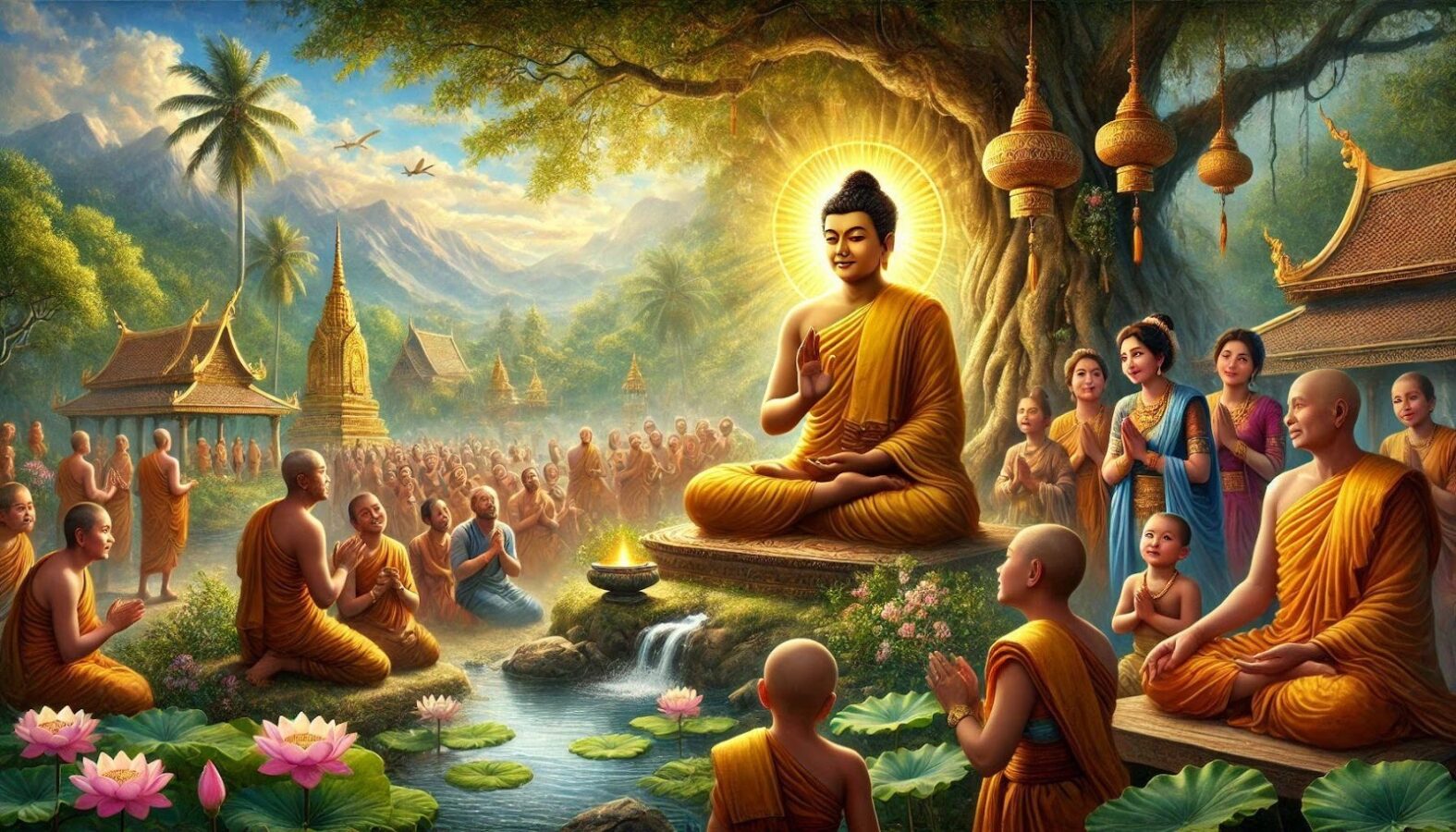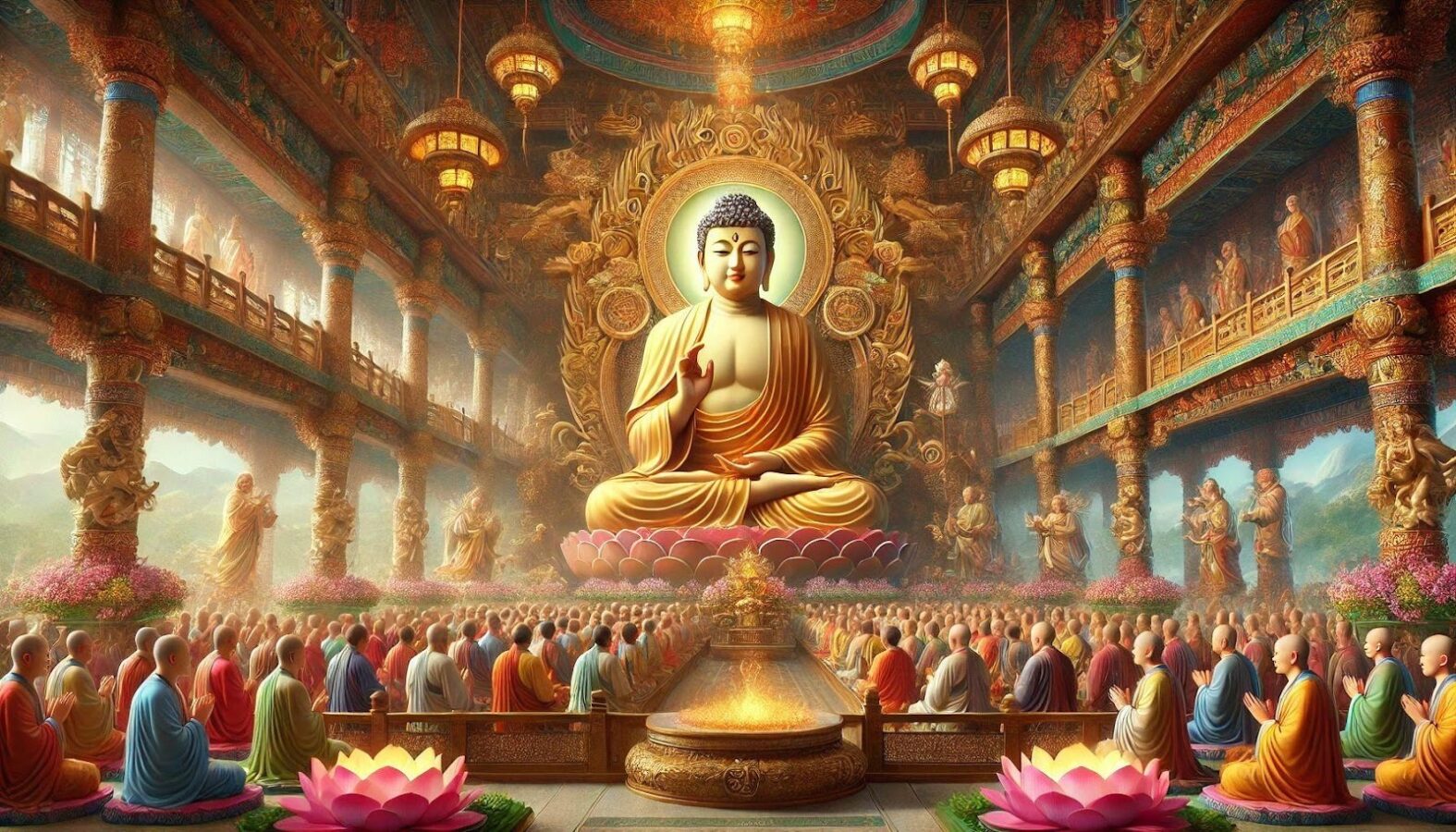
Date: 01/04/2025 01/05/2025
Location: Star Lake Meditation Center
Teacher: Shilin Long
Dharma Talk
The Young Monk Who Attained Enlightenment Upon Hearing a Verse
“Do not follow inferior practices, do not dwell in heedlessness.
Do not adhere to false views, do not increase worldly attachments.”
(From the Dhammapada, Chapter on the World, Verse 167)
This verse was spoken by the Buddha at the Jetavana Monastery, directed towards a young monk. The story unfolded as follows:
One morning, an elder monk accompanied a young novice to the home of Visakha, a devout laywoman. Visakha, known for her deep faith, would host 500 monks daily, offering them seats and providing breakfast and lunch.
After the elder monk finished his porridge at Visakha’s home, he left the young novice there and went to visit other lay supporters. At the same time, Visakha’s granddaughter was helping serve the monks. While pouring water for the young novice, she happened to see her own reflection in the water bowl he was holding. Finding it amusing, she laughed aloud.
The young monk, noticing her laughter, mistakenly thought she was laughing at him and burst out laughing as well. The granddaughter, seeing the monk laugh, scolded him harshly, saying, “Bald donkey! What are you laughing at?”
Offended, the young monk retorted, “You’re the bald donkey! Your parents are bald donkeys too!” Hurt by his words, the granddaughter ran crying to her grandmother, Visakha, and told her what had happened.
Visakha approached the young monk, who was still visibly angry, and gently tried to console him. “Venerable sir, please do not be upset. My granddaughter respects monks who shave their heads and wear robes.”
The young monk responded, “I understand your point, but why did your granddaughter call me a bald donkey? She shouldn’t have insulted me like that!”
Unable to resolve the conflict, Visakha waited for the elder monk to return. Upon learning the details of the incident, the elder monk explained to the young novice, “She did not single you out; she was simply referring to all of us who have shaved heads. Do not take it personally.”
However, the young monk was still angry and exclaimed, “You should scold them instead! Why are you criticizing me? You are also a monk; why are you taking their side? Think about it—should they call me a bald donkey?”
At this moment, the Buddha arrived. After hearing the account from Visakha, the Buddha contemplated and realized:
“If I show partiality to this young monk, he will immediately attain the first stage of enlightenment (Sotapanna).”
The Buddha then decided to side with the young monk, saying to Visakha:
“Visakha, does your granddaughter really need to call someone with a shaved head a bald donkey?”
Hearing this, the young monk’s anger dissipated, and he folded his hands in respect, saying, “World Honored One, you are truly wise. Neither the elder monk nor Visakha understood me as you do.”
Seeing that the young monk had calmed down, the Buddha solemnly taught:
“Joking about the desires between men and women is lowly and vulgar. Do not follow inferior practices or live a heedless life, drifting through the days aimlessly. Such actions arise from false views and only increase the endless cycle of worldly suffering, keeping one bound to the ocean of birth and death without liberation.”
The Buddha then repeated the verse:
“Do not follow inferior practices, do not dwell in heedlessness.
Do not adhere to false views, do not increase worldly attachments.”
Upon hearing this verse, the young monk immediately attained the first stage of enlightenment (Sotapanna), and the gathered audience also benefitted greatly from the Buddha’s teachings.

